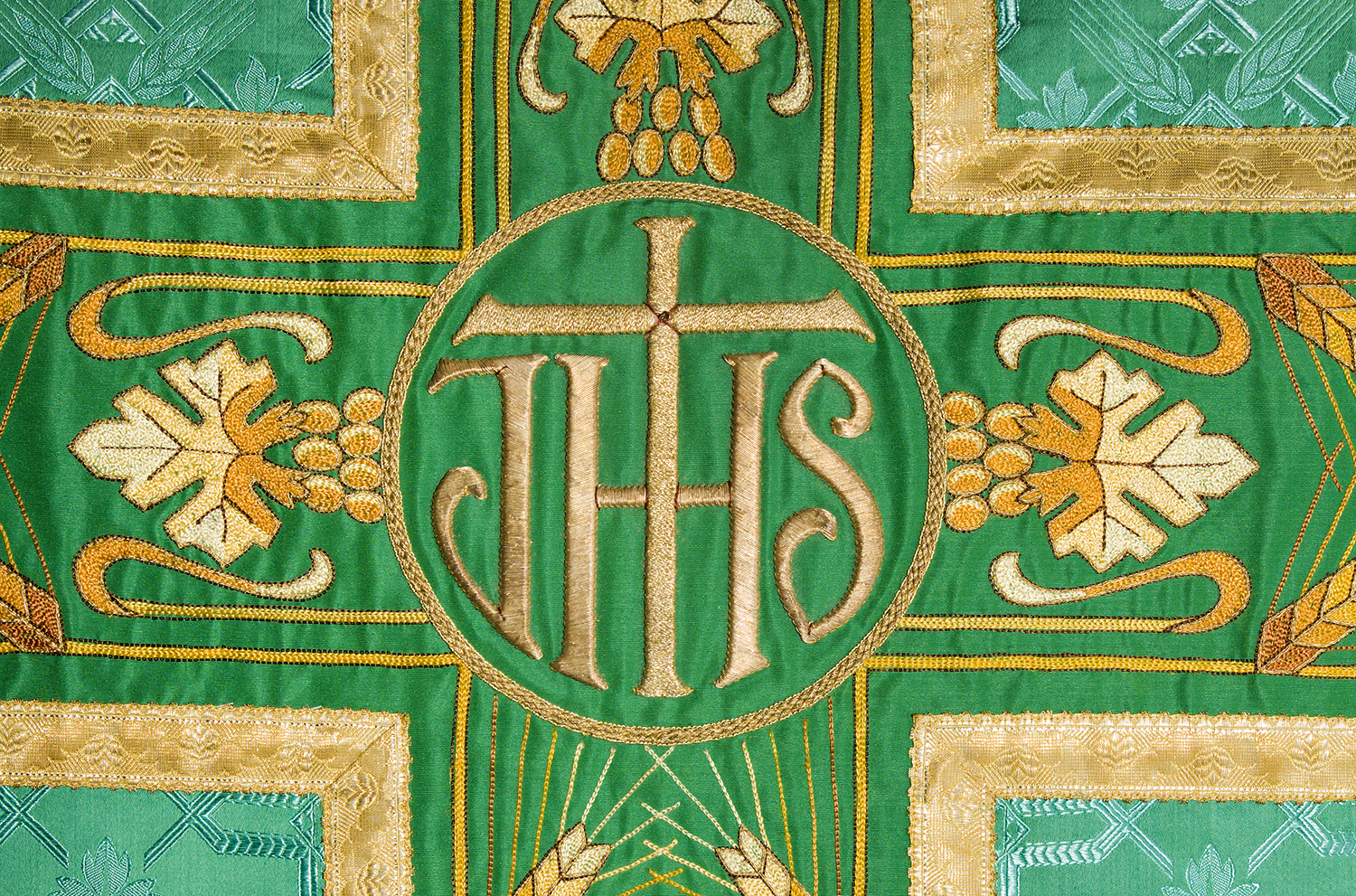Recently my son lamented to me that he was disappointed it was ordinary time in the liturgical calendar. This past Lenten and Easter seasons were very eventful for our family. He received his first reconciliation, his birthday fell during the Triduum, and he received his first holy Communion during the Easter season.
But now, the purples and whites have given way to green. Green is already the primary color of our church decor, so the blandness of it all simply just hit him one day.
“Nothing exciting until Advent,” he said.
Why we need Ordinary Time
I know there is a purpose to ordinary time and that it is important, but I did not know how to explain this to him. How can we appreciate the sun without the cloudy days? How can enjoy dessert without the nutrition that comes from vegetables? Something like that? These explanations fell short to me. I Googled resources for making ordinary time fun. There wasn’t too much out there.
A few weeks later, I coincidentally came across an article by Jesuit Brother Guy Consolmagno, the director of the Vatican Observatory, that encouraged me to think a little deeper (that Holy Spirit is incredible!). Brother Consolmagno is an astronomer, researcher and author. In his books and blogs, he reminds Catholics of the naturally innate and interdependent relationship between religion and science, and he explains science, nature and astronomy in an accessible and enjoyable way.
He also has a good sense of humor, something revealed in Would You Baptize an Extraterrestrial? … and Other Questions From the Astronomers’ Inbox at the Vatican Observatory which he co-wrote with Jesuit Father Paul Mueller. Think astrophysicist Neil deGrasse Tyson with a clerical collar, and you’re getting close to an image of Brother Consolmagno.
Of course, astronomy and our liturgical calendar are linked. For example, Easter is calculated by lunar cycles. Because Jesus’ death and resurrection are linked to Passover, which is also calculated according to the lunar cycles, Easter is always the first Sunday after the first full moon of spring.
But in this particular article, published in The Catholic Astronomer, Brother Consolmagno pointed out that ordinary time is actually nothing but ordinary in our event-packed liturgical calendar.
Being the Vatican’s top astronomer, Brother Consolmagno wrote that he also cherishes ordinary time from a professional point of view. In his laboratories, ordinary time is special because it is so infrequent and rare. He usually travels and so finding a lull for real lab work is gratifying. In his lab, he measures and updates the inventory of the Vatican’s meteorite collection. Most of the meteorites he categorizes are considered … ordinary.
“Most of the meteorites I measure are ‘ordinary chondrites,’ again their importance to me is in their very ordinariness. Without characterizing what is usual, how can we recognize what is unusual?” he wrote.
Similarly, ordinary time in our liturgical calendar can be a time for us to do some real work in our labs — in our homes, at the dinner table, in the car with our families, and within our souls.
6 ways to make Ordinary Time special
1. Focus on Christ’s life
With less time worrying about placing decorations, hanging wreaths, buying gifts, stuffing baskets and preparing hunts, maybe your family will intentionally and successfully find that more time can be carved out for previewing the Scriptures with your kids. Ordinary time can be a time of growth in learning about and knowing Jesus. The United States Conference of Catholic Bishops puts it best: “The Sundays and weeks of ordinary time … take us through the life of Christ. This is the time of conversion. This is living the life of Christ. Ordinary time is a time for growth and maturation, a time in which the mystery of Christ is called to penetrate ever more deeply into history until all things are finally caught up in Christ. The goal, toward which all of history is directed, is represented by the final Sunday in ordinary time, the Solemnity of Our Lord Jesus Christ, King of the Universe.”
2. Learn about the lives of the saints
Saints are a great way to show your family how to live a life that shines a relationship with Jesus…and that makes ordinary time a great time to begin a family tradition of reading the stories of the saints on a regular basis. Playing with the Saints and Saints for Kids are appropriate ways for young children to read about the saints. The stories have coloring pages and activities inspired by the saints’ adventures. And here is a list of movies about saints for your reference.
3. Try new family prayers and devotions
Ordinary time can be a meaningful time to worship and pray together in new ways:
- try monthly devotions
- pray the Chaplet of Divine Mercy
- try meditative prayer
- help your children consecrate themselves to Mary
It’s also a good time to either jump-start or reboot your family prayer time. How’s it going? What might you do to change it up a little, or make it work better?
4. Go to confession
Parishes remind us to go to reconciliation during Advent and Lent, oftentimes organizing parish-wide opportunities to go. But perhaps summer vacation from busy school schedules might lend itself to more time for intentional examinations of conscience, penance and forgiveness. Perhaps as we work on our relationship with Jesus, we can work on our relationships with one another.
5. Celebrate the Eucharist
Every Sunday is an Easter, during ordinary time or not. Go to Mass with your kids, reminding them every single Sunday is a celebration of Christ’s resurrection. Here are more than 25 strategies for making Mass work with kids….for example:
- have kids write down what they are thankful for on slips of paper and place them in the collection basket during the offering of the gifts;
- do a liturgical scavenger hunt;
- give younger kids something appropriate to look at; give older kids a kid0friendly Mass missal;
- unpack the Mass as a family afterward.
6. Spruce up your home oratory
Do you have a home oratory or prayer table? Spruce it up with special items that only come out during ordinary time: saint cards for the feast days of the saints, natural objects that represent the season (fall leaves, spring flowers, beautiful pebbles)…and, of course, a green tablecloth, or even a banner your kids make.
What ways will you and your family mark this liturgical season of growing closer to knowing Jesus together as a family? How will you make ordinary time extraordinary this year?



